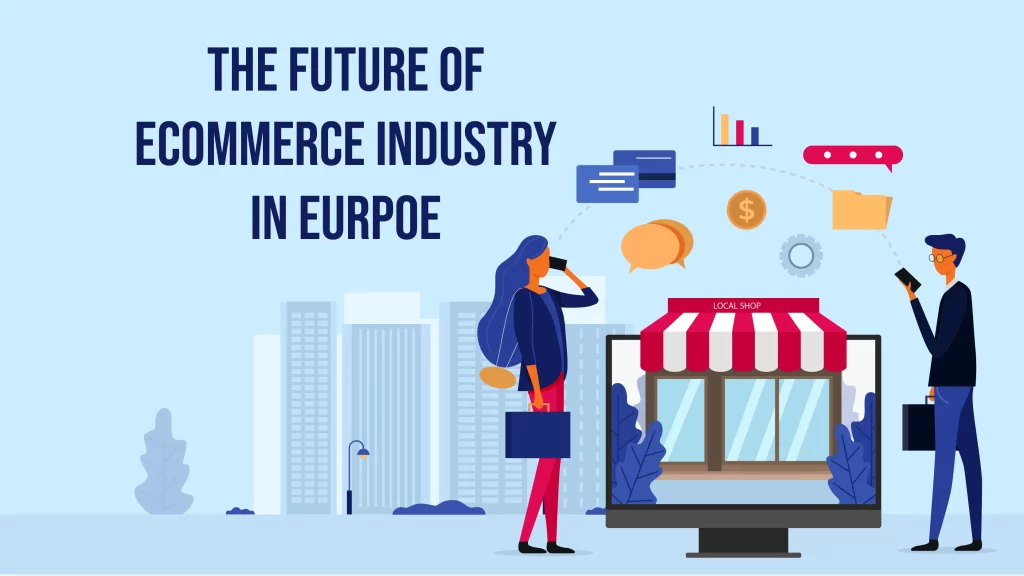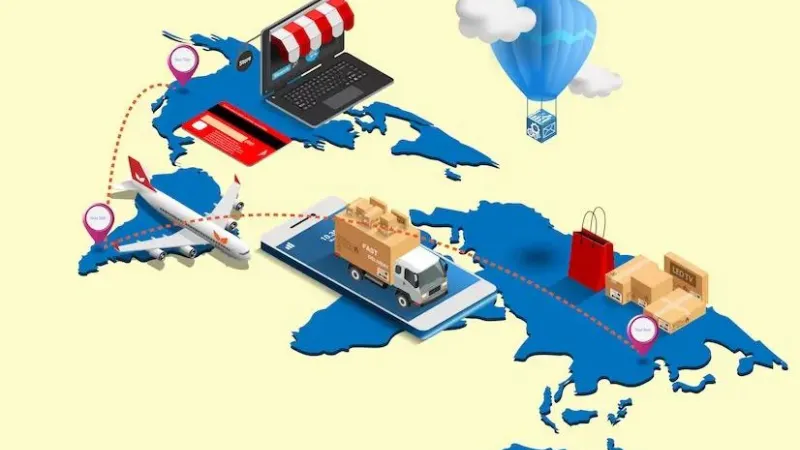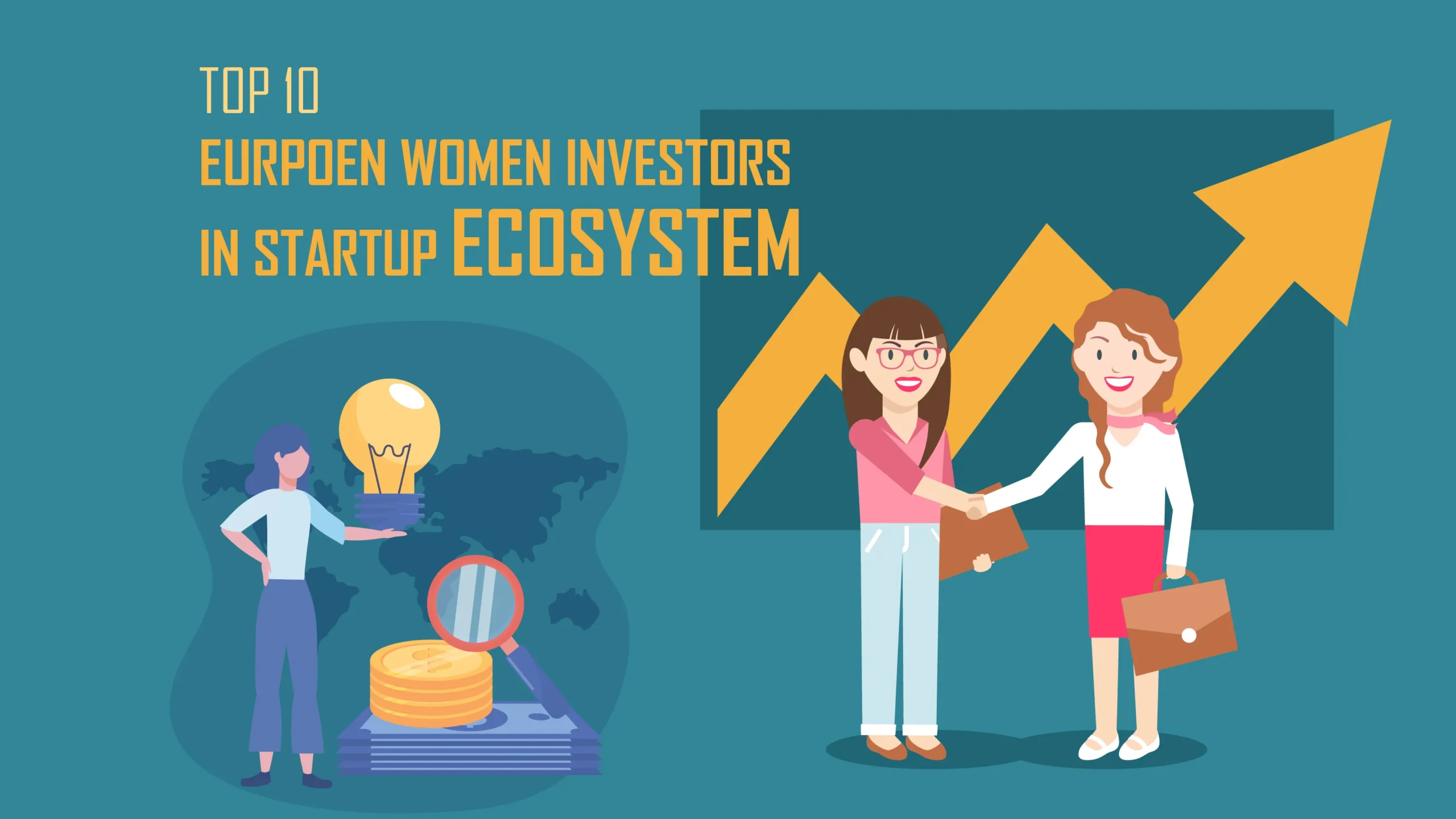
Europe is the second smallest continent on the planet Earth. It offers a blend of history and cultures, a place where one can enjoy the amazing architectures like the Eiffel Tower, the colosseum etc. This continent is a combination of distinctive countries with many languages, food preferences and festivals, an extraordinary world within itself. Europe is widely adored for its timeless reflection of the beautiful cities that is holds. Paris the city of love, Rome the enchanting city, Berlin the city with modern trends are all valuable destinations of Europe with its own charisma and power to attract people. Europe's diverse landscape comprises of both local and global players competing for market share.
Europe's rich cultural variety and its dynamic cities play a central role in reinforcing its Ecommerce market. The region's cultural mosaic not only increases demand for a wide range of products but also ignites more number of international trade, as consumers search for products from different European locations. Cities of Europe, each with its distinguished characteristics, promotes innovation and creativity, compelling Ecommerce businesses to offer to the varied needs and preferences of urban citizens.
The existence of well-developed infrastructure that includes well maintained logistics networks, error free payment systems, and availability of internet, contribute to the entire E-commerce experience, making the E-commerce industry more approachable and user friendly for natives and tourists as well.

The European e-commerce industry has encountered sustained growth, driven by factors like cross border transactions, mobile shopping and the indispensable importance to sustainability. The e-commerce sector in Europe is also affected by emerging data and privacy regulations. As Europe is continuously evolving into the digital transformation, thee-commerce sector remains a key contributor to economic factors by implementing novelty in its actions and by being available to consumers across the continent.
The Ecommerce industry in Europe possess great significance for various aspects. Ecommerce industry contributes remarkably to the European economy by yielding revenue, creating employment opportunities, and assisting businesses present in the region. It is a key contributor to economic growth. Ecommerce industry offers consumers with a suitable and accessible arena to shop, presenting a wide array of products and services online, very often with reliable payment and delivery options.

It enables businesses of different categories to access a large customer base by introducing their products and services online, promoting entrepreneurship and creativity The E-commerce industry enables cross-border trade within the European union, strengthening international business collaborations and economic alliances among participants. E-commerce plays a key role in the digital advancement of European product and service industries, enhancing innovation and acceptance to modern consumer choices and demands.
Read also - Top 10 Real Estate Startups in Europe
E-commerce industry immensely support job opportunities in many sectors, including, technology, marketing, logistics and customer service, fostering skill development. The European e-commerce sector can impact sustainability by promoting conscious consumption, decreasing the requirement for manual retail infrastructure, and driving eco friendly practices.
The European Ecommerce sector understands the significance of data security nd cyber protection, prioritizing the creation of regulations and standards that protect consumer data. Ecommerce industry in Europe are planning to globalize themselves by utilizing nternational market opportunities and advertising uropean brands and products on the international arena. The European Ecommerce industry is highly committed to bridge the digital gap by making online shopping accessible and available to a wide array of consumers especially residing in remote or underserved areas. European Ecommerce industry encourages the involvement of advanced technologies like Artificial intelligence, big data, and IoT, which have numerous applications beyond the Ecommerce industry. European Ecommerce industry fuels competition among entities, leading to more qualitative products, enticing services, and pricing choices, that benefits consumers in many ways.

The future of the Ecommerce industry in Europe is estimated to consistently perceive its growth and achievement. It will evolve into a novel landscape where there is prosperity, availability, accessibility, customer satisfaction, revenue generation are the principle aspects. E-commerce industry in Europe will continue to increase its market share, with more number of consumers switching to online shopping due to user friendly practices and dynamic buying habits.
European Ecommerce companies will breathtakingly involve in international trade, both within the European union and with global markets, utilizing opportunities for global expansion. Mobile shopping is predicted to grow, with more number of consumers opting to use smartphones and mobile applications for their online purchases. There will be an emerging focus on sustainability and eco-responsive measures in the Ecommerce sector, with consumers looking for brands offering eco-friendly and environmentally responsible products and practices. Continuous indulgence of advanced technologies like Artificial Intelligence, Augmented Reality/Virtual Reality, and blockchain for enhanced customer experiences, tailored recommendations, and corrective transactions.

The European e-commerce industry will face emerging rules, regulations and data privacy challenges, needing companies to adapt to new adherence requirements. Innovations in last-step delivery, including advanced drones and autonomous vehicles, developed using advanced technologies will improve delivery efficiency and reduce environmental impact while contributing to a sustainable and greener globe while transformingthe logistic sector of Ecommerce.
Competitiveness among E-commerce platforms in the E-commerce industry will remain fierce, with mergers and acquisitions playing a role in market harmonisation. Improved customer experiences, including instant shipping, hassle free returns, and conventional customer service, will be an utmost priority for European E-commerce industry. Options like online marketplaces and brands dealing directly with consumers will coexist, providing consumers with a variety of options.
There are certain evolutionary trends and specifications that is expected to enter the European E commerce industry in the future years. These trends include introduction of AI algorithms for personalised shopping, product recommendations by AI, participation of customised chatbots, use of augmented reality that allows customers to visualise products before actually owning them, prioritizing sustainable packaging and emission free deliveries, involvement of smart speaker to enhance voice activated shopping, hassle-free integration of online and offline user friendly shopping activities, involvement of subscription based e-commerce services, stringent policies and rules for data protection and cybersecurity, AI driven campaigns conducted by brands to cater to specific customer needs, streamlining demand, supply and customer satisfaction, enhanced automation in warehouses using robotics, catering to the unexplored and niche segment. The major contributor in Europe E-commerce industry are the retail industries including cosmetics, garments, skincare products, packaged foods, electronics etc.

Major players like Amazon, eBay, Aliexpress, allegro, and Zalando will expand themselves and their services to cater to the various needs of increasing number of customers. Major players falling under B2C and B2B categories will diversify to another way if providing services. The Ecommerce industry will give rise to a large number of intricate digital marketplaces. With the increasing number of internet users and enhanced digital literacy Europe's Ecommerce industry will flourishing in the future.
The E-commerce sector in Europe is a key player of economic growth, technological advancements and availability for consumers, at the same time fostering cross-border trade and assisting businesses and creating job opportunities. Not only in Europe but at a global level E-commerce is redefining the definition of commercial activities on a global level. Its importance consistently enhance in the digital age. The E-commerce industry in Europe is expected to prosper and grow and enhance its ability to meet changing consumer needs and demands.


 Follow us
Follow us Follow us
Follow us















